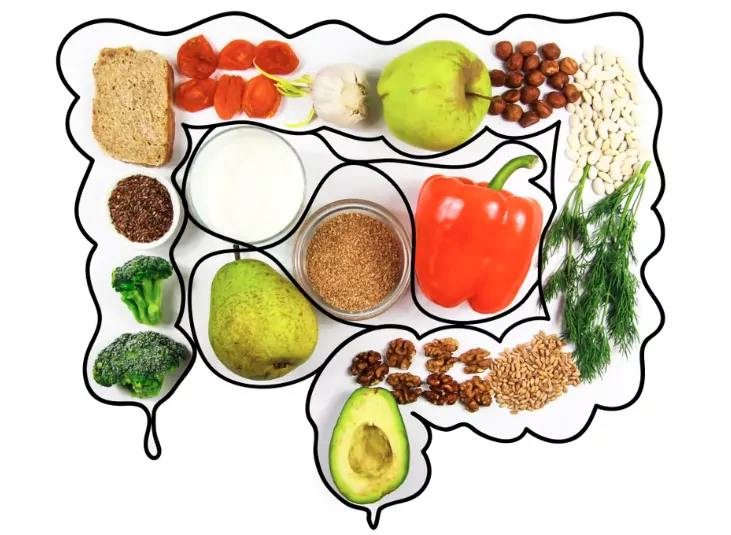Expert Advice on How to Reduce Belly Fat Quickly

Belly fat, a common concern for many, is not just an aesthetic issue but also a significant health risk. Abdominal fat can be categorized into subcutaneous fat and visceral fat, with the latter being linked to several health risks, such as heart disease and metabolic syndrome. This article will explore comprehensive strategies on how to reduce belly fat and emphasize the importance of maintaining a healthy lifestyle, balanced diet, and regular exercise to lose belly fat effectively.
- Understanding Belly Fat
- Proven Tips to Decrease Belly Fat
- Maintain a Healthy Diet
- Role of Diet in Reducing Belly Fat
- Importance of Regular Exercise
- Manage Stress and Sleep Well
- Fiber Intake and Gut Health
- Lifestyle and Healthy Habits
- Limit the Intake of Processed Foods
- Impact of Body Weight on Belly and Body Fat
- Regular Exercise and Muscle Mass Maintenance
- Weight Loss Journey: A Holistic Approach
- Managing Calories: The Key to Weight Loss
- Wrapping Up: Making Lasting Changes
1 Understanding Belly Fat

Belly fat accumulation is a result of a calorie surplus, where excess calories are stored as fat in the body, leading to weight gain. It’s crucial to understand that losing belly fat involves a holistic approach that combines diet, exercise, and lifestyle changes to burn belly fat and maintain weight management.
When we speak about reducing belly fat, it predominantly refers to visceral fat, the fat that accumulates around our organs. Visceral fat is more hazardous than subcutaneous fat, the fat stored under our skin, due to its correlation with numerous health issues.
2 Proven Tips to Decrease Belly Fat
Maintain a Healthy Diet

One of the principal methods to reduce belly fat is maintaining a healthy, balanced diet, rich in whole grains, lean meat, and healthy fats.
- Lower Carb Intake: Opting for a low-carb diet can help in losing weight and decreasing abdominal fat.
- Consume Lean Meats: Include lean meats and high-protein foods in your diet as protein can increase metabolic rate and reduce cravings.
- Incorporate Healthy Fats: Consuming healthy fats found in fatty fish and avocados can help in weight management and reducing belly fat.
- Avoid Trans Fats: Trans fats found in some processed foods can lead to abdominal fat gain, and it’s essential to avoid them.
- Limit Sugar Intake: Reducing sugar-sweetened beverage consumption is critical as it leads to belly fat accumulation.
Role of Diet in Reducing Belly Fat
A balanced diet is crucial in losing belly fat and weight management. An excessive calorie intake can lead to weight gain and fat accumulation, particularly around the belly area. One should strive to consume fewer calories than the calories burned to lose weight effectively.
1. Low Carb Diet
Adopting a low-carb diet is essential for losing weight and reducing belly fat. Processed foods and sugar-sweetened beverages are high in carbohydrates and can lead to abdominal fat gain. Instead, focus on consuming whole grains and high-protein foods. These can help you feel full for longer and avoid overeating.
2. Healthy Fats and Lean Meats
Trans fats are found in packaged and fried foods and can lead to fat accumulation in the abdominal area. Replacing trans fats with healthy fats like avocados, olive oil, and fatty fish can benefit fat metabolism and overall health. Additionally, incorporating lean meats like chicken and turkey can contribute to a higher metabolic rate and muscle mass preservation, aiding in burning more calories.
3. Green Tea
Green tea is a renowned weight loss beverage. It’s rich in antioxidants and can boost metabolism to help burn belly fat. Regular consumption of green tea combined with a healthy diet and exercise can significantly contribute to weight loss efforts.
Importance of Regular Exercise

Regular aerobic exercise is crucial for anyone looking to lose belly fat. Exercises like walking, running, and cycling can help burn fat, improve body composition, and reduce belly fat accumulation.[1]
Manage Stress and Sleep Well

Stress and lack of sleep can lead to weight gain and an increase in belly fat due to hormonal changes. Managing stress through relaxation techniques and ensuring adequate sleep is critical in avoiding excessive belly fat accumulation.
Fiber Intake and Gut Health

A dietary fiber intake is essential for maintaining a healthy digestive system and plays a vital role in weight management. Soluble fiber can help manage weight by creating a feeling of fullness, thereby reducing overall calorie intake. Furthermore, a healthy gut can contribute to a healthier metabolism aid in weight loss, and reduce belly fat effectively.
Lifestyle and Healthy Habits
In addition to diet and exercise, maintaining a healthy lifestyle is imperative for weight loss and reducing belly fat. Adequate sleep, stress management, and avoiding alcohol and smoking can contribute to better health and reduced belly fat accumulation. A consistent routine that includes these healthy habits can help in maintaining body weight and reducing excessive belly fat.
Limit the Intake of Processed Foods

Processed foods are usually high in added sugars, unhealthy fats, and calories. Reducing the intake of processed foods and opting for whole, nutrient-dense foods can lead to fewer calories consumed and help in weight loss efforts.
Impact of Body Weight on Belly and Body Fat
Body weight plays a crucial role in the amount of belly fat a person stores. People who weigh more are likely to have more visceral fat and subcutaneous fat. Hence, focusing on overall body weight and body composition is essential in the quest to lose belly fat. Embracing a healthy lifestyle and maintaining a balanced diet can help in achieving and maintaining a healthy body weight, subsequently leading to less abdominal fat.
Regular Exercise and Muscle Mass Maintenance
A combination of aerobic exercise and strength training can significantly help burn belly fat and improve body composition. Aerobic exercises, such as walking and running, are effective in burning calories and improving fat metabolism, which in turn aids in losing belly fat. Strength training helps maintain muscle mass, which is vital during the weight loss journey.
Weight Loss Journey: A Holistic Approach
Embarking on a weight loss journey involves more than just focusing on the abdominal area. It’s essential to address the overall lifestyle and diet. Regular exercise combined with a balanced diet rich in vitamins like vitamin C and high in lean meats can boost the body’s ability to burn fat.
Managing Calories: The Key to Weight Loss
Managing calorie intake is pivotal in losing belly fat. It’s crucial to be mindful of the calories consumed and opt for a diet that is rich in nutrients but low in excess calories. Opting for whole foods and avoiding processed ones can significantly decrease calorie intake and prevent excess belly fat accumulation.
3 Wrapping Up: Making Lasting Changes
Understanding how to reduce belly fat is crucial for achieving lasting health benefits and avoiding serious health risks associated with abdominal obesity and metabolic syndrome. By adopting a healthy diet devoid of excess sugars and trans fats, and rich in lean meats, whole grains, and healthy fats, one can significantly impact belly fat reduction.
Regular aerobic exercise, coupled with strength training, can aid in burning belly fat by improving muscle mass and boosting metabolism. A healthy lifestyle supplemented with adequate sleep, stress management, and avoidance of harmful substances can further enhance weight loss efforts.
In conclusion, reducing belly fat involves a multifaceted approach consisting of a healthy diet, regular exercise, and a balanced lifestyle. These changes, when incorporated consistently, can lead to significant health benefits, including decreased risk of heart disease and improved overall well-being. While the journey might be challenging, the long-term health benefits of losing belly fat are well worth the effort.
Community Q&A
References
-
1.
Chia-Hua Kuo, M. Brennan Harris, Jørgen Jensen, Ahmad Alkhatib, John L. Ivy: Possible Mechanisms to Explain Abdominal Fat Loss Effect of Exercise Training Other Than Fatty Acid Oxidation. - Retrieved on November 15, 2021
About This Article
This article has been viewed 222 times.



